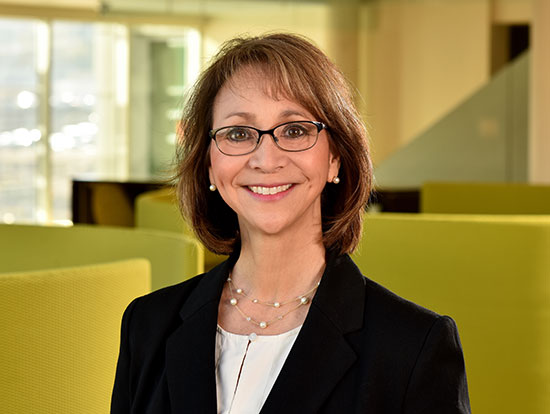
By Erica Techo
University of Alabama at Birmingham School of Nursing Assistant Professor Lisa Pair, DNP, CRNP, WHNP-BC (MSN 1992, DNP 2018) is making strides toward enhancing diversity, equity and inclusion in the School’s Women’s Health Nurse Practitioner Pathway with the support of a 2022 Alabama League for Nursing Faculty in Nursing scholarship grant.
As part of the grant, Pair is working with the School’s Office of Diversity, Equity, and Inclusion to assess content within the Women’s Health Care Nurse Practitioner Specialty curriculum to ensure it meets the needs of all populations.
“In women’s health, we serve a diverse population of patients, including transgender patients, LGBTQ+ patients and other patients from marginalized communities with reproductive health needs,” Pair said. “The goal of enhancing DEI content in our curriculum is to help educate future providers on the importance of separating their personal views from optimal care for their patients.”
This review also elevates curriculum by ensuring sufficient time is spent teaching and learning about patient care for populations that often face discrimination, said Associate Dean of Diversity, Equity and Inclusion Felesia Bowen, PhD, DNP, RN, PPCNP-BC, FAAN. For example, a 2021 article in the Journal of Nursing education found that nursing programs on average provide less than five hours of training specific to LGBTQ+ patients.
“This is woefully insufficient given the fact that 7 percent of the U.S. population identifies as a member of the LGBTQ+ community and typically faces health disparities due to marginalization, discrimination and stigma,” Bowen said.
While the current curriculum addresses some DEI topics, including care for a diverse patient population, Pair said this is an opportunity to improve the curriculum by ensuring the dissemination of best practices for the care of LGBTQ+ individuals and other communities that face marginalization, discrimination and stigma. It will also ensure that graduates are prepared to deliver high quality, evidence-based care with cultural humility when they enter the workforce.
“This is important because awareness of religious and social differences, social determinants of health and more can affect the type of care that patients can receive,” Pair said. “As providers, we need to be able to identify any barriers and help bridge those gaps to ensure the safest and highest quality care for our patients.”
Advancing the curriculum also means increasing awareness of community resources and social services that can assist patients, as well as in-clinic changes that can make a patient more comfortable. For example, modifying forms to say spouse or partner instead of husband or wife and teaching providers to use inclusive language, Pair said, can help improve the comfort of patients.
Part of the mission of the UAB School of Nursing Office of Diversity, Equity and Inclusion is to assist faculty with DEI course related content, Bowen added, and can include assessing a course for DEI content, helping faculty develop student learning activities or a course redesign. She is excited to be working with Pair on this project.
“Dr. Pair’s grant allows her to make significant course level revisions that will amplify our core values and ensure that UAB NP graduates are not only competent, but embody qualities that allow all patients to feel valued and safe when in their care,” Bowen said.
Pair said current work includes a literature review to establish best practices for care, evidence-based care for a diverse patient population, education on implicit bias and more. The existing curriculum will then be evaluated against those best practices, and Pair will work with Bowen to implement any necessary improvements or changes.
“This is a needed evaluation for our Women’s Health NP Pathway courses so that we can make sure we are teaching what we need to be from a diversity, equity and inclusion lens,” Pair said. “Our School wants to provide curriculum that teaches our students to provide culturally competent, quality health care for all populations, and ensure that our graduates know how to apply this knowledge moving forward.”
